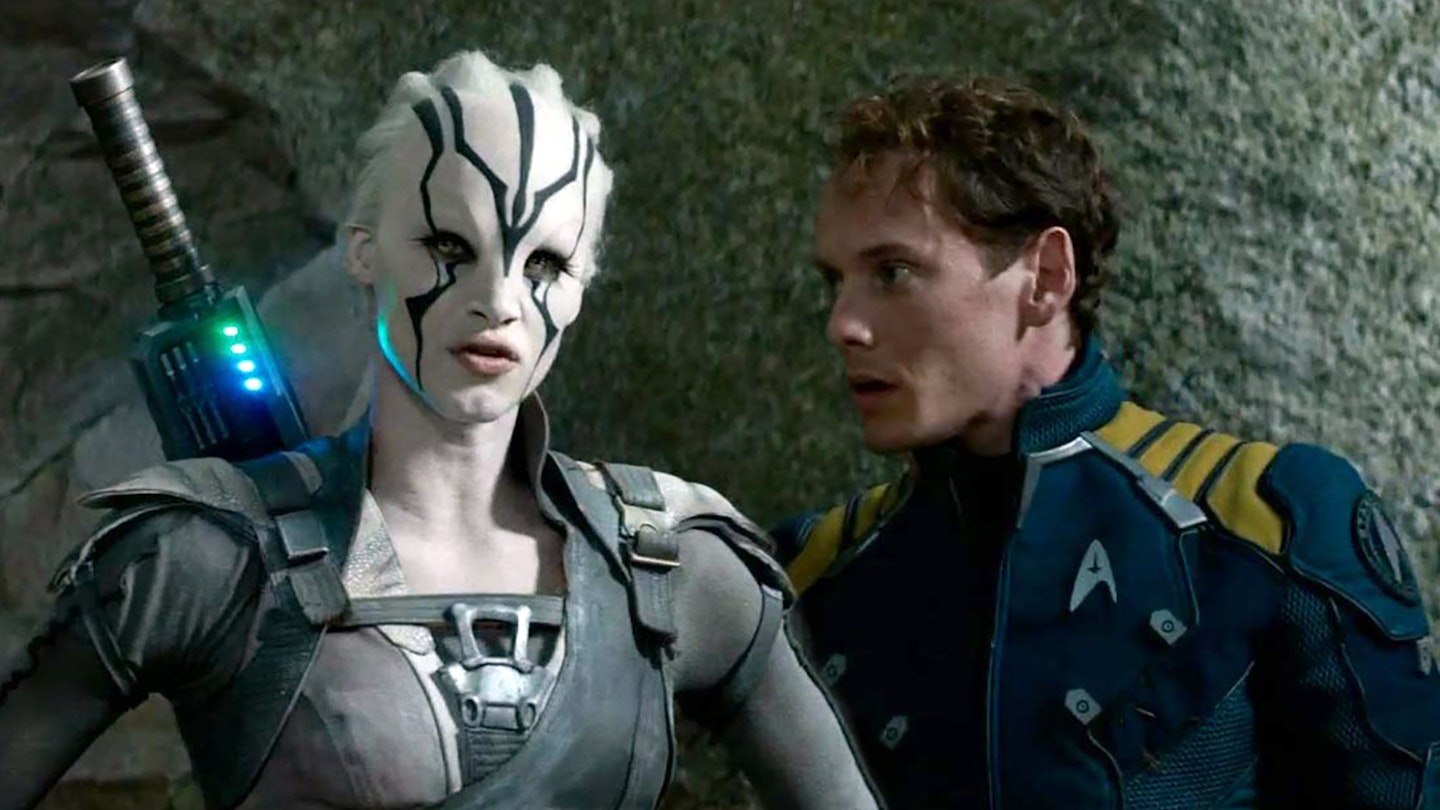While creatively Star Trek Beyond was perhaps the most satisfying entry in the rebooted film series, its release was also in some ways overshadowed by the tragic death of Anton Yelchin, who had portrayed Pavel Chekov.
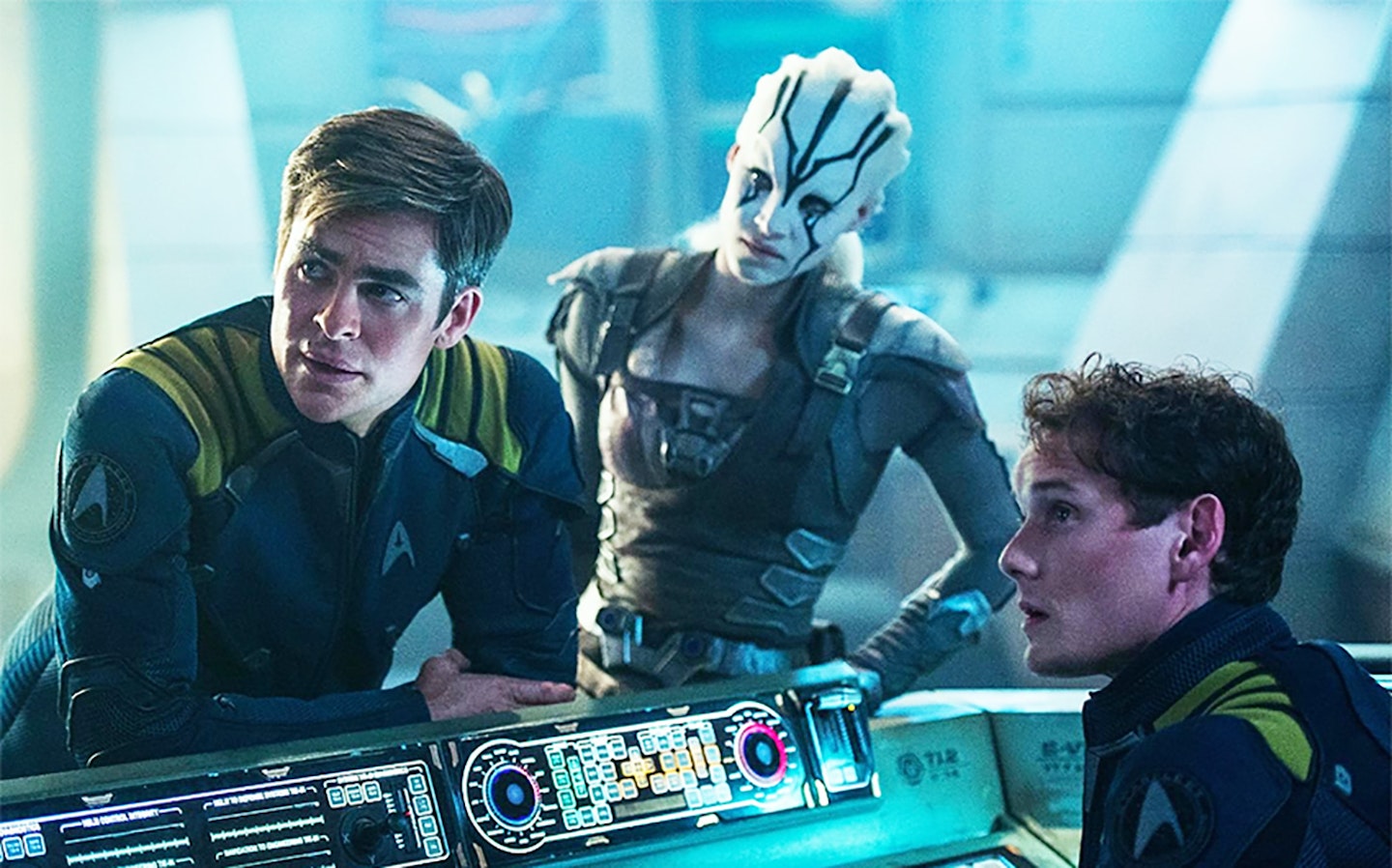
By the age of 27, Yelchin had already amassed a variety of film credits, including Hearts In Atlantis, Alpha Dog, Fierce People, Charlie Bartlett, Middle Of Nowhere, Terminator Salvation, the remake of Fright Night, and Like Crazy. He portrayed Chekov in Star Trek, Star Trek Into Darkness and, of course, Star Trek Beyond. He will next be represented by the Guillermo del Toro TV series Trollhunters, for which he provided the voice of Jim.
In Star Trek Beyond, the starship Enterprise is destroyed by an enemy hellbent on vengeance against Starfleet. Scattered on an alien world, the crew must come together to not only save themselves, but the galaxy as a whole.
The following unpublished interview with Anton Yelchin was conducted on the afternoon of Thursday 16 June of 2016 just three days before his death.
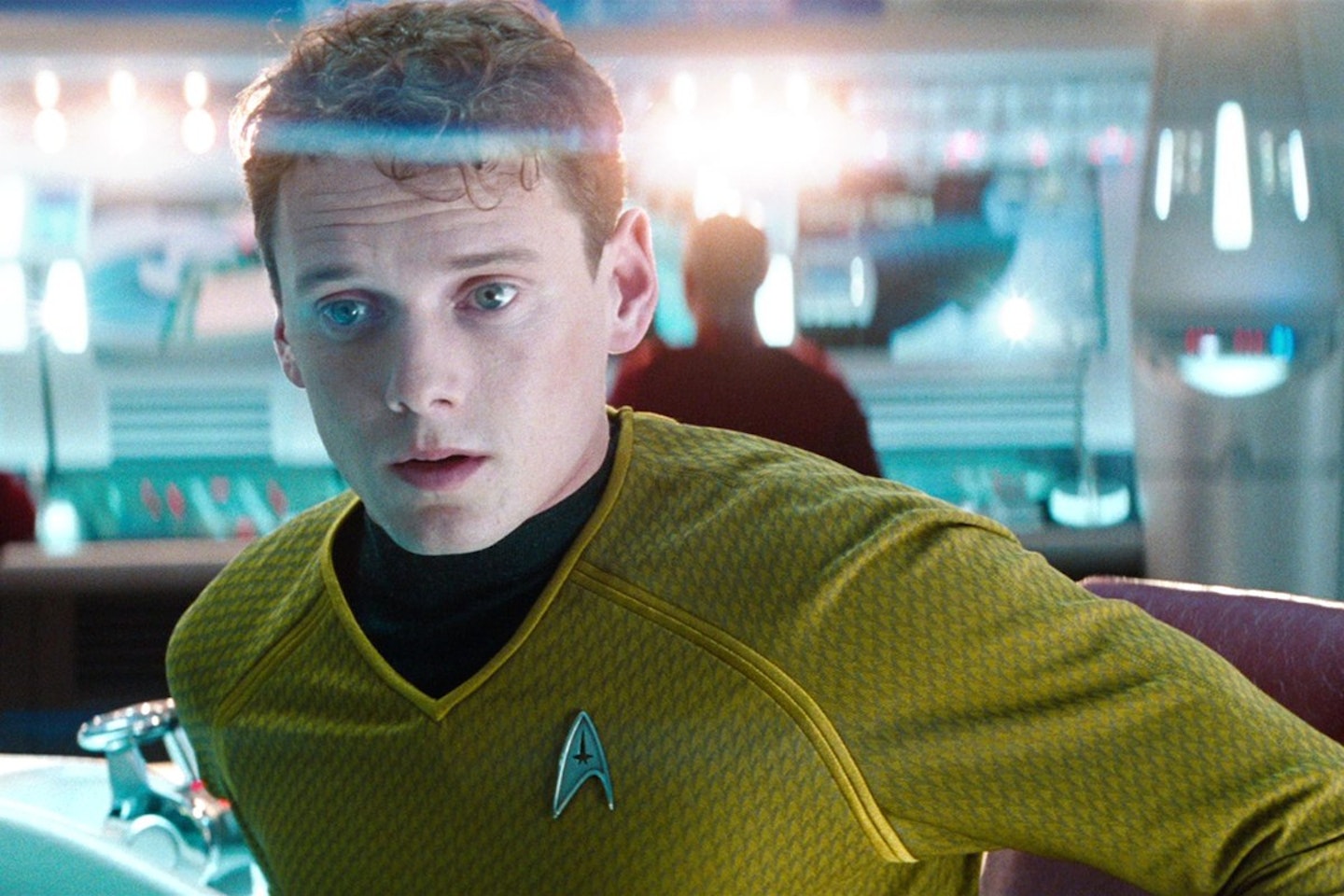
At the Star Trek fan event back in May, Zachary Quinto pointed out that it’s been about ten years since you guys first went before the cameras on Trek. Is that strange at all for you to consider that it’s been that long already?
Yes, actually, it has almost been a decade. You see everyone between the films a little bit, but then it's wild to think that there's a feature every three or four years. It's such an odd thing, you know? Then go back to it and get right back into the same thing. It's a very fascinating and odd experience. But it’s a great feeling. I love it, actually, because you grow in the interim. Let's not say grow, but you definitely evolve and change and transform in the interim, and then seeing what you can bring to it anew is really interesting. You know, what else you can bring to these characters and what else you can do and new moments you can find. We started borrowing as much from the original performance ... At least for me, I borrow as much from Walter Koenig as myself in this weird way. Not to sound like a complete egotist, it's just that I end up going, "Okay, that's something that I was doing. I should do that again." Stuff like that. It's an odd thing.
But the more you play it, doesn’t it become much more your take?
Yes, but I always love borrowing, because I love Walter Koenig's performance. I think it's wonderful and I feel grateful that there's such a wealth of little moments and things that he created, and my favorite thing is incorporating that into my work. It's interesting to revisit that each time.
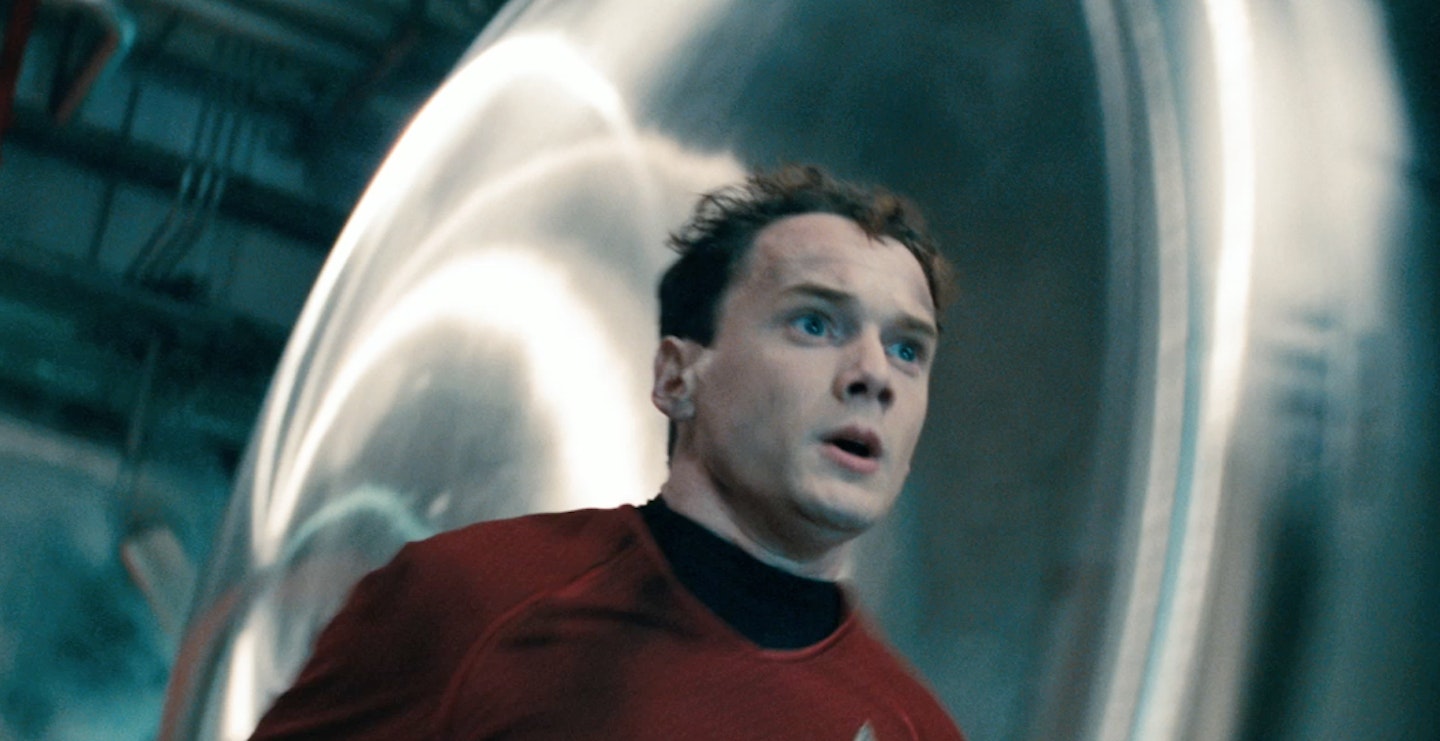
You brought up a good point about coming back having changed and grown. Can you track how both you and Chekov have changed over the years?
In 2009, I literally had just graduated high school, so it was kind of odd to think about that. Literally I would've been going to University that year, but we did the first Trek. In terms of Chekov, I think in this film, specifically because they're faced with the destruction of the Enterprise, it adds a more dire quality. Existential crisis is a little strong, but it has this very intense existential element of trying to figure out exactly what his place is in this space and world in a way that he hasn't had to before. I think part of it was the themes of the film that there is a complacency that sets in once you've been doing it for awhile, and that's really stripped from everyone on the crew. Chekov has to figure out, "Why am I doing this? What exactly am I doing? What can I bring to it? What do I value most?" I remember making the most notes about that for myself, just moments where you're discovering what it is he values the most in all of this. I assume that to be the people, the crew, each other.
Does that reflect on you at all in terms of what you value the most from making these movies with this group of actors?
Here's the thing: I think the most appropriate way to look at things for me is to have the experiences. It sounds cheesy, but it is true, because every film is such a gamble. Who knows what's going to happen with any film, you know? But you do get this time shared with the people you're there with. You do get to experience that and be together and do things together and study one another. That's a huge part of making these films.
The other part is, of course, being in these huge, fun movies that have this incredible legacy that they're a part of. Especially given it's the fiftieth anniversary, I’m quite flattered and honored to be a part of it, but the other part is on a much smaller scale, just being a part of this group and getting to know everyone. Not just the actors and the crew and seeing familiar faces, but seeing new faces as well. It's really kind of what makes every film special in this weird way.

After the destruction of the Enterprise, the characters pair up in different ways and you end up spending more time with Chris Pine's Kirk in this movie than you have in the other two. What is that pairing like?
I had a lot of fun with it, because Kirk is all balls and all heart and action and intellect. It's paired with activity. He acts. I think Chekov is more cerebral and he is a technician. It was fun to play off that sort of a relationship, but also the moving part of the relationship is how much tremendous respect Chekov has for Kirk, and how Kirk really shows Chekov what it means to be a part of his team and what he values most. Kirk really does that, I think, for the characters. They're always talking about, "Our captain will do this and that." That comes from the original series. Their belief in their captain allows them to believe in themselves and in the enterprise — not their ship, but what they're doing.
Their five-year mission, basically.
Yes, exactly. That character of Captain Kirk is the one that teaches them about themselves and what they're doing and why they want to be doing it and what's important about it. I think to be that close to that character, that's always a subliminal thing. Why is Chekov doing this? It's looking at Kirk that makes him realize that.
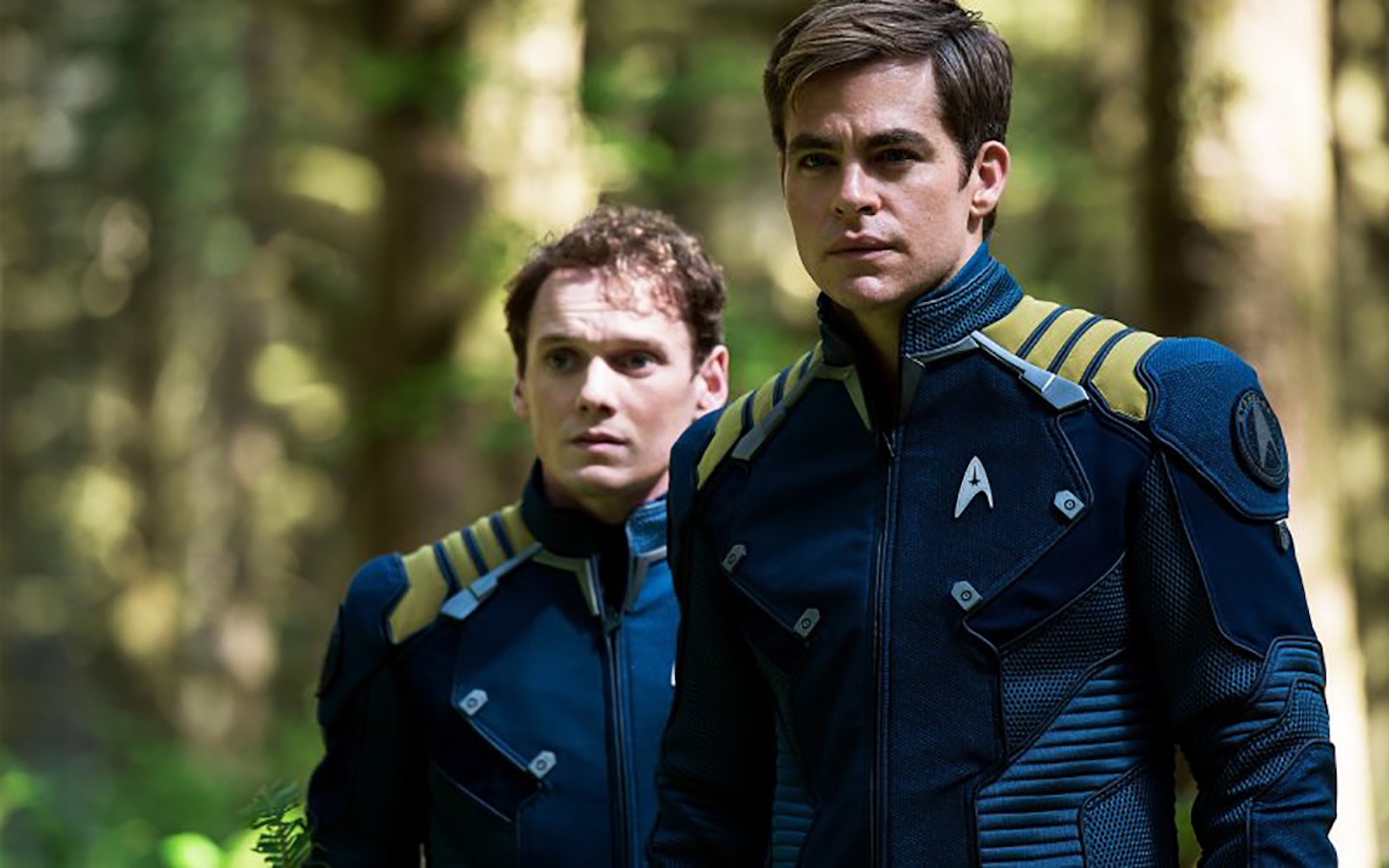
Because you're on camera with him much more, you get to play colors of the character that you haven't had a chance to play before.
Totally. Chris is a really funny guy, so it's comedic things, too, that we both got a kick out of.
Obviously this was the first one that Justin Lin directed. What do you think he brings to the mix that contrasts with what JJ Abrams brought?
From what I understand, Justin Lin has been a lifelong Trekkie and has always loved the original series and the films. As an actor, what I look for in directors is that there's a very acute sense of what you're trying to accomplish and what you would like to accomplish; the emotional beats or moments for the characters to indulge in. I just really appreciate that. That's what you're going by. All I have to go by is discovering moments and ideas and things like that. I found that Justin is really sensitive to all of that, and I really appreciated that about him and about working with him.
The first two trailers got very different reactions. Which do you think more closely represents the film?
I'd have to say the second one. I find that both sides of the coin are satisfied by this picture. I think that there are excellent moments of spectacle and action and the film is fun and the action is incredibly well executed. There's a lot for anyone who doesn't give a shit about Trek, just to be frank, to enjoy. You know what I mean? That being said, I think Simon Pegg and Doug Jung worked really hard to infuse this film with qualities from the series in terms of the characters, the stakes that various characters have to deal with, the emotional and intellectual content of the film, and specifically the relationships between the crew members. That is really, aside from the general theme of unity and connection between civilization, what the series thrives on, the relationships of these characters that you love. You love their little idiosyncrasies and their connections, their moments of joy and loss. I’d say that was really great about the original show, and I think Doug and Simon, and Simon on set, worked really hard to find those moments in every scene.
The film is very much something for that fan base, the dedicated fan base that Star Trek is so fortunate to have. It's the essence that's there, and at the same time part of science fiction is spectacle. It is the way that the fiction element is executed. Justin executes that really well and I think that fiction element also allows this film to have a much broader, bigger audience.
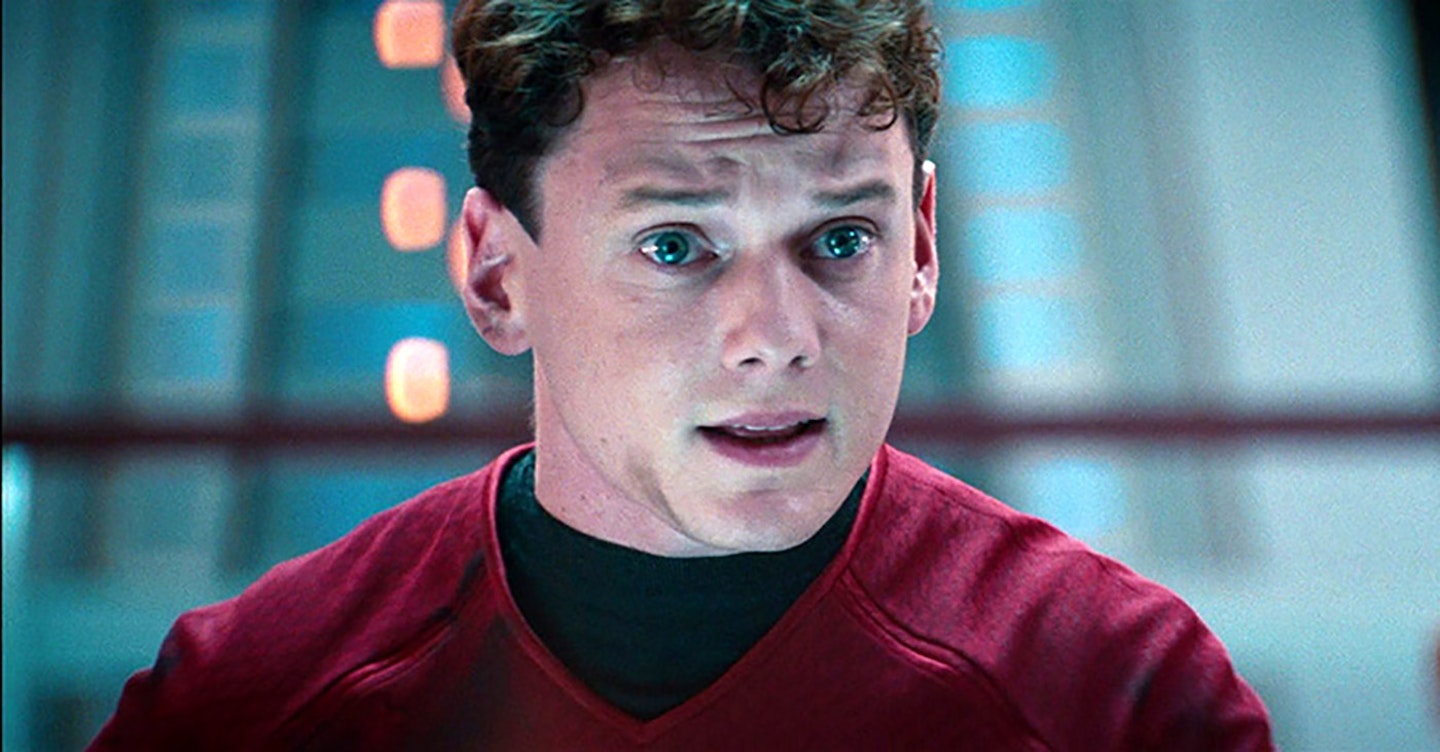
The original Star Trek was a perfect prism in which to look at humanity. As these films get bigger and have action and spectacle, is there still the opportunity to provide that prism of exploring where we are as a society, where we are as a people?
The unfortunate thing is that Gene Roddenberry's hope for the future still seems a hope we have for the future, and not at the present moment. If anything, there's probably more disunity and more confusion as a result of the Cold War ending. I think that's what Gene Roddenberry was contending with was the Cold War, and it was two super powers vying for the world in a way, and all of these incarnations in various continents of that fight. Now we live in this post-colonial, post-Cold War world where all you see is disunity. Look at what happened this weekend in Orlando [the mass shooting at the Pulse club in Orlando, Florida]. It's terrifying and devastating. We live in a world that is constantly trying to seemingly implode and find as many reasons not to see eye to eye as possible.
Until we resolve that — and who knows when that will be or how to do that? — Gene Roddenberry's message will always be relevant, and it will always be important. It’s about discovering what connects people and how to connect and not how to destroy one another, but how to try and figure out how to live together. I think that's an ancient quest that, given socio-economics and socio-politics, has gotten more and more convoluted. We seem to be infinitely unified in our technology and infinitely disparate in our ability to see eye to eye.
Star Trek Beyond will be released on Blu-ray 1 November in the US, and 21 November in the UK
